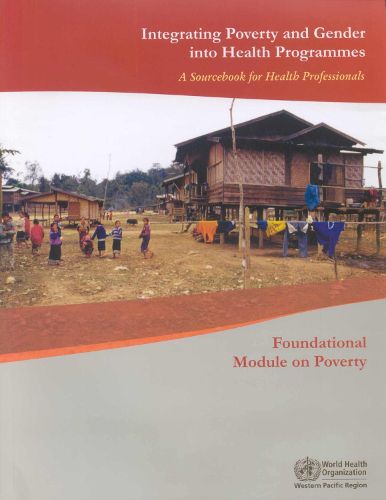Readings Newsletter
Become a Readings Member to make your shopping experience even easier.
Sign in or sign up for free!
You’re not far away from qualifying for FREE standard shipping within Australia
You’ve qualified for FREE standard shipping within Australia
The cart is loading…






Malaria remains a global public health problem. In the Western Pacific Region, malaria is endemic in 10 countries. The incidence rate in the Region ranges from 161.7 per 1000 people in Solomon Islands to 0.04 in the Republic of Korea.
The strategies employed to prevent and control malaria have been effective in reducing the burden of disease in countries in the Region. Yet, as analyses of health outcomes become more refined it is increasingly apparent that poor and marginalized populations might not be benefiting from investments in malaria prevention and control. The challenge for health care professionals is to ensure that effective malaria prevention and control initiatives reach poor and marginalized populations in the Region.
It is estimated that about 70% of the world’s poor are women. Similarly in the Western Pacific Region, poverty often wears a woman’s face. Indicators on human poverty including health indicators often reflect severe gender-based disparities. In this way, gender inequality is a significant determinant of health outcomes in the Region with women and girls often at a severe societal disadvantage.
Although poverty and gender significantly influence health and socioeconomic development health professionals are not always adequately prepared to address such issues in their work. This publication aims to improve the awareness knowledge and skills of health professionals in the Region on poverty and gender concerns.
The set of modules that comprise this Sourcebook are intended for use in pre-service and in-service training of health professionals. It is expected that this publication will also be of use to health policy-makers and programme managers either as a reference document or in conjunction with in-service training. This module is designed to help fill the gap by building the capacity of health professionals to analyze and address the interrelationship between poverty and health. It is divided into six sections.
Section 1 defines what poverty is, its consequences and multiple dimensions. It also identifies a variety of measures and indicators of poverty including methods of determining the prevalence of poverty and inequality within a community. Section 2 explains what the links between poverty and health are. Section 3 discusses why it is important for health professionals to address issues of poverty from efficiency equity and human rights perspectives. Section 4 discusses how health professionals and the health care system as a whole can address issues of poverty with a special focus on low-income women and those from other marginalized or vulnerable groups. Section 5 provides notes for facilitators and finally section 6 contains a collection of tools resources and references to support health professionals in their work in this field.
$9.00 standard shipping within Australia
FREE standard shipping within Australia for orders over $100.00
Express & International shipping calculated at checkout
Malaria remains a global public health problem. In the Western Pacific Region, malaria is endemic in 10 countries. The incidence rate in the Region ranges from 161.7 per 1000 people in Solomon Islands to 0.04 in the Republic of Korea.
The strategies employed to prevent and control malaria have been effective in reducing the burden of disease in countries in the Region. Yet, as analyses of health outcomes become more refined it is increasingly apparent that poor and marginalized populations might not be benefiting from investments in malaria prevention and control. The challenge for health care professionals is to ensure that effective malaria prevention and control initiatives reach poor and marginalized populations in the Region.
It is estimated that about 70% of the world’s poor are women. Similarly in the Western Pacific Region, poverty often wears a woman’s face. Indicators on human poverty including health indicators often reflect severe gender-based disparities. In this way, gender inequality is a significant determinant of health outcomes in the Region with women and girls often at a severe societal disadvantage.
Although poverty and gender significantly influence health and socioeconomic development health professionals are not always adequately prepared to address such issues in their work. This publication aims to improve the awareness knowledge and skills of health professionals in the Region on poverty and gender concerns.
The set of modules that comprise this Sourcebook are intended for use in pre-service and in-service training of health professionals. It is expected that this publication will also be of use to health policy-makers and programme managers either as a reference document or in conjunction with in-service training. This module is designed to help fill the gap by building the capacity of health professionals to analyze and address the interrelationship between poverty and health. It is divided into six sections.
Section 1 defines what poverty is, its consequences and multiple dimensions. It also identifies a variety of measures and indicators of poverty including methods of determining the prevalence of poverty and inequality within a community. Section 2 explains what the links between poverty and health are. Section 3 discusses why it is important for health professionals to address issues of poverty from efficiency equity and human rights perspectives. Section 4 discusses how health professionals and the health care system as a whole can address issues of poverty with a special focus on low-income women and those from other marginalized or vulnerable groups. Section 5 provides notes for facilitators and finally section 6 contains a collection of tools resources and references to support health professionals in their work in this field.